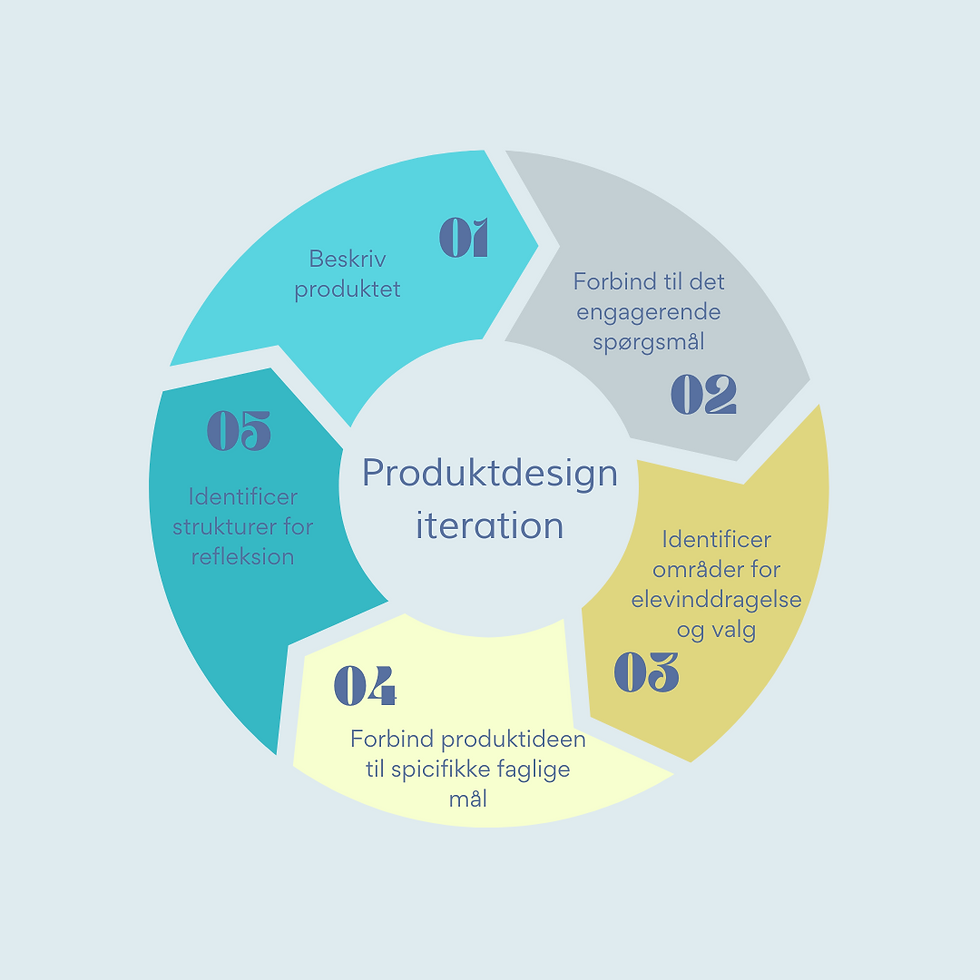Copy of Imagine if students leave primary school with a zest for life, curiosity, and readiness to embrace the exciting challenges that await them
- Loni Bergqvist
- 30. apr. 2024
- 4 min læsning

Dear readers, let me introduce Josefine, Daniela, and Ella from Vorbasse School who are in the 9th grade. They have been working with Project-Based Learning (PBL) since the 5th grade, and rightly so, we can call them experts in PBL. I had the pleasure of having a conversation with them where, in their own words, they enlightened me significantly about PBL from a student's perspective. For that perspective is arguably the most important when investigating whether the schooling students spend so much time on actually makes sense to them.
I must start by saying that I was genuinely moved by the students' experience. It was factual, personal, and reflective to such an extent that I left with great optimism for the young generation. There was so much in that meeting that affirms the importance of prioritizing student involvement, creating a meaningful school day, and fostering deep learning so that all children succeed in school.
Below, I will highlight some of the nuggets I gathered from the conversation:
Deep Learning
The girls could recall almost every project they had worked on since the 5th grade. Not just in headlines but with detailed stories about the academic focus, the depth of knowledge they had acquired, and Ella's statement "I think I can remember my entire presentation from 7th grade" speaks volumes about the meaningful content that was significant for her. Here are some project titles: Death, Endangered Animals, Life on Mars, Robots, Building Cannons, "Do You Have Good Boxes," Gender Equality, Leaving the Nest, Mistakenly Fantastic, Space, and more.
Joy
They all mentioned feeling joy in going to school, which is connected to finding the projects engaging, and they can relate to the content. At the same time, they emphasized the importance of ensuring that there's something for all students in the projects. If there are subjects they struggle with, those should be balanced by subjects they feel confident in. This creates balance and gives them courage to face challenges. They were very aware that everyone learns differently, and if students are to feel the joy of going to school, individual needs must also be catered to and acknowledged.
Courageous
They feel they have become courageous and dare to try new things. It's natural for them to stand up and present in front of others. "We want to talk about our projects because we think it's awesome to share about them." They have showcased their projects to various audiences, highlighting the significant value for them, for instance, that younger classes can learn exciting things from them. It means a lot when others can benefit from what you have created, and this naturally opens up the desire to communicate their learning.
Freedom
Freedom to choose has sparked in the girls a desire to learn more. The opportunity to choose the direction of their project, product development, group collaboration, etc., are examples they highlight as crucial. "If teachers dictate what we should do, we lose interest, and it becomes boring." When we have the opportunity to make our own choices, it also becomes freedom with responsibility, and responsibility gives freedom.
Collaboration
They emphasize that collaborating with classmates is essential for their success in projects. It creates a strong sense of community in the class and gives them more responsibility. If they work independently on a task, receiving feedback from peers is also immensely helpful for new ideas and assistance with the next steps.
Values
At the end of the conversation, I asked the girls to mention three things that were the most important values they took away from their work with PBL. They really made an effort and reflected for a while to choose the right words that were meaningful to them. Note that each of them highlights different things. I'll leave them without comments and ask you to think a bit on the depth of the girls' choices.
Josefine:
Productive - Social - Responsible
Daniela:
Independent - Creative - Fun
Ella:
Freedom - Joy - Development
Advice from Josefine, Daniela, and Ella:
• Plan good projects that make sense to students.
It's not always that what teachers think are good ideas is the same as what interests us and makes sense to us.
• Make the projects memorable.
We remember much better what we have learned if the content of the projects has made a significant impact on us. There should be something important at stake.
• Incorporate various subjects and perspectives.
All students are different and have different interests. If we are to contribute good energy, there should be something for everyone.
• Give students the freedom to choose.
The more ownership we get, the more engagement. It's just a bit more exciting when we get the opportunity to make our own choices and choose directions.
• Listen to students' good ideas.
Ask the students and involve them when planning the project. Even though we're not adults yet, we have a lot of good ideas that we can contribute.
By Caja Fournaise



Kommentarer